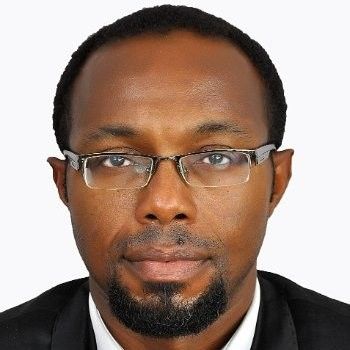Article
Analysis of Sickle Cell Disease Policies and Practices in Nigeria
Author(s):
According to the results, 42.8% of participants failed to agree that relevant legislature is in place for the sickle cell disease population, as it doesn't facilitate optimal access to high-quality healthcare.
Dr. Obi Peter Adigwe

In the US, sickle cell disease (SCD) is classified as a rare disease; worldwide, it's estimated that 25 million individuals live with the genetic blood disorder. Globally, the majority of individuals with sickle cell disease live in sub-Sharan Africa, and more specifically, Nigeria carries the highest burden of disease where sickle cell trait (SCT) is present in 25% of the population.1
According to an assessment of Nigerian healthcare policies and practices, to mitigate this burden, many churches require hemoglobin electrophoresis tests for couples who intend to marry, as an attempt to reduce the prevalence of sickle cell disease. Despite controversy, churches continue to implement the practice.
"Considering the burden of sickle cell disease in the Nigerian setting, it is of critical importance to explore the views and experiences of this category of stakeholders," Obi Peter Adigwe, National Institute for Pharmaceutical Research and Development, Abuja, Nigeria, wrote. "This approach guarantees that government policymaking and professional practice reforms are underpinned by evidence-based research. So far, no study has adopted this approach with respect to healthcare professionals' perspectives in the Nigerian setting."
Professional Perspectives: Sickle Cell Disease
To include perspectives of healthcare professionals on the accessibility of healthcare for individuals with sickle cell disease in Nigeria, a self-administered questionnaire was utilized. The aim was to obtain the answers reported in the questionnaire, identify key points from professionals as representative data.
Adigwe used the Statistical Package for Social Sciences (SPSS) to for analyses in the cross-sectional study. A panel of 4 health science faculty members with experience teaching research activities regarding sickle cell disease particpated in the iterative process to deveop the questionnaire.
All items in the qestionnaire were structured with intent to gather insight into the policies and practices of healthcare for patients with sickle cell disease.
Unmet Needs of the Nigerian Sickle Cell Disease Population
According to the results, 42.8% of participants failed to agree that relevant legislature is in place for the sickle cell disease population, as it doesn't facilitate optimal access to high-quality healthcare.
Majority (61.2%) of the cohort reported the public health surveillance focused on sickle cell disease in Nigeria was suboptimal. An even greater proportion (78.7%) of participants agreed that the expense involved with invidividual management of sickle cell disease was not affordable to the majority of Nigerians who live with the condition.
"This study provides critical insights into access to healthcare services for sickle cell disease," Adigwe wrote. "As such, challenges preventing access to healthcare services for sickle cell patients which have been identified in this study can underpin the development of contextual policies to address them."
References:
Adigwe, O. P. (2023). Access to healthcare for people with sickle cell disease: Views of healthcare professionals on policies and practices. Molecular Genetics & Genomic Medicine, 00, e2142. https://doi.org/10.1002/mgg3.2142





